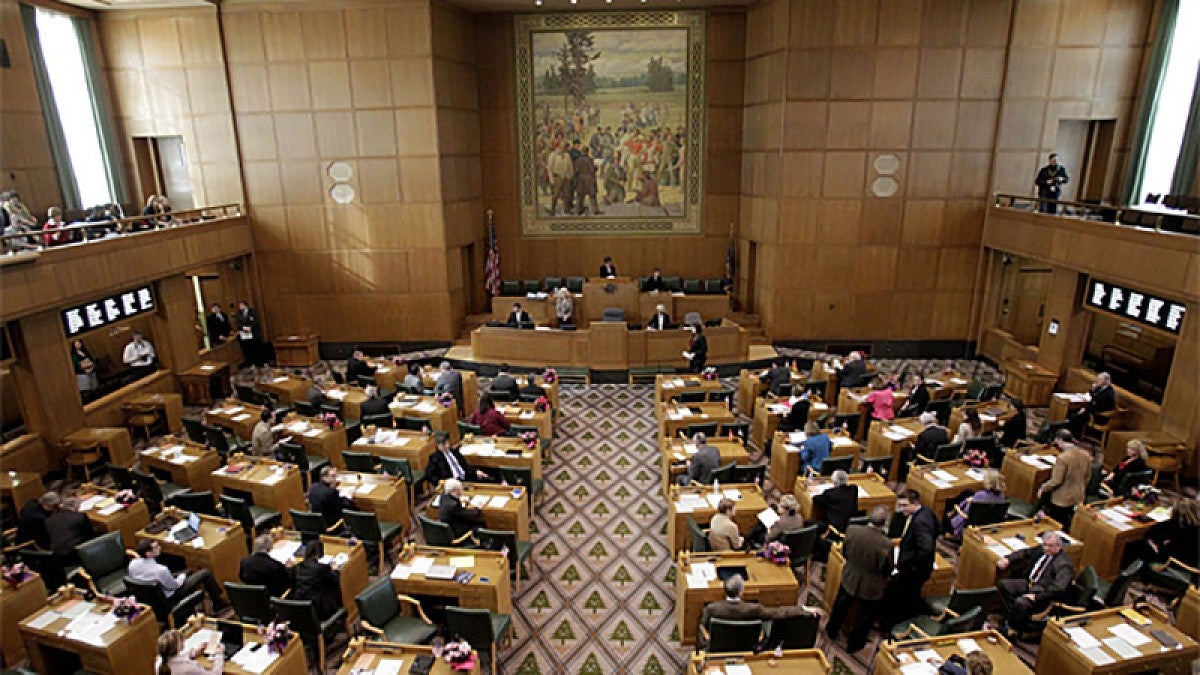The UO’s Knight Campus for Accelerating Scientific Impact made its debut before the Oregon Legislature last week when a group of university faculty and students spoke about the potential of the $1 billion initiative before a House committee.
With lawmakers nearing the two-month mark in the 2017 session, members of the House Higher Education and Workforce Development Committee held the first informational hearing on the project. The UO is requesting $100 million in state bonds that will be matched with funds from the $500 million gift from Penny and Phil Knight that anchors the project.
Speaking at the hearing were Patrick Phillips, acting executive director of the Knight Campus; Karen Guillemin, professor of biology and one of the faculty members who developed the initiative; and Michelle Sconce, a graduate teaching fellow and student of Guillemin. A recording of the hearing can be viewed on the Oregon Legislature's website.
“This is a really wonderful opportunity for us as a state,” Sconce said in her testimony to the committee. “I’ve lived in Oregon my whole life and this is an opportunity to show we value science and also gender equality…This complex will really help women have training in all fields of science, but it also ensures the faculty that are hired are diverse.”
The Knight Campus will provide an unprecedented opportunity in Oregon to speed up the impact cycle of scientific discoveries, create economic development for private investment and industry spin-off companies, and enhance collaboration between institutions of higher education.
In other legislative news, lawmakers continue to debate how to close the state’s $1.6 billion budget gap. Ideas include cutting spending as well as raising revenue to make investments in areas such as transportation, infrastructure and education.
On the table are potential reforms to Oregon’s Public Employee Retirement System, new or increased taxes on hospitals and businesses, and various cost containment measures across all sectors of the budget.
In addition to the larger budget and policy issues, other UO priorities are seeing movement in Salem.
Other proposed bills affecting the UO are moving through the legislative process:
- SB 214 would establish an alternative retirement benefit for postdoctoral scholars at public universities in Oregon, which will help attract more federal research dollars.
- HB 2582 would establish a university research “fighting fund,” providing a pot of money that institutions can apply for to match federal grants and increase their chances of securing federal funding.
- HB 2565 would enhance priority registration for students who are veterans to ensure they can access the classes they need to maintain their benefits and graduate on time.
- HB 3276 would ensure reimbursement of costs associated with vaccinations in urgent health situations, like the meningitis B outbreak on UO’s campus in 2015.
- HB 2729 would continue open educational resources programming, making textbooks more affordable for Oregon students.
For more information about the latest federal, state and local government and community relations actions and initiatives that affect the UO, see the Government and Community Relations Update.


